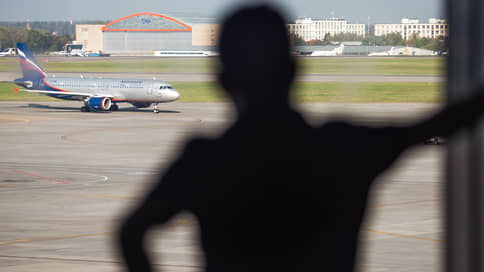Subsidies flew off – Newspaper Kommersant No. 180 (7381) of 09/29/2022
[ad_1]

Special subsidies to airlines in the context of external sanctions in 2023 will be reduced to 25 billion rubles. from the current 100 billion rubles. In total, carriers will receive less than 54 billion rubles under the main programs, which is almost three times less than this year. Kommersant’s interlocutors believe that there are no prerequisites for a surge in traffic in 2023 and additional funding will be required to maintain passenger traffic. But experts consider it more rational to subsidize passengers rather than carriers.
Russian airlines should receive about 53.5 billion rubles through the Ministry of Transport. subsidies in 2023, this is reflected in the draft budget submitted to the State Duma until 2025. Subsidies for reimbursement of operating expenses of airlines for domestic transportation “under the conditions of external sanctions” will amount to 25.3 billion rubles. No funds are pledged for 2024–2025. In 2022, 100 billion rubles were allocated for this measure, and taking into account almost 20 billion subsidies to return money to passengers for canceled flights this year, the amount of state assistance, as previously calculated by the Ministry of Transport, reached 150 billion rubles.
The subsidy for the development of regional flights bypassing Moscow in 2023 will be reduced by 300 million rubles to 9 billion rubles. Plans to support flights to the Far East, Crimea and Kaliningrad remained unchanged: 12.3 billion rubles each in 2023–2024 and less than 12 billion rubles in 2025. The amounts to support socially significant routes of the Far Eastern Federal District remained practically the same: about 7 billion rubles. in 2023 and 7.7 billion rubles. in 2024-2025.
Kommersant sent inquiries to the Aeroflot group, S7, Utair, Smartavia and Red Wings.
Kommersant’s interlocutors in the airlines agree that a sharp surge in passenger traffic and the opening of communications with Europe next year is not expected. Without an increase in the cost of a ticket or adequate funding from the state, maintaining current prices for flights within the country seems elusive to them.
The share of more marginal international flights in 2022-2023 will definitely remain at a fairly low level, Alexander Gushchin, director of the ACRA corporate ratings group, agrees: “This will indicate the need to financially support the industry in order to prevent a significant increase in ticket prices.” So far, the situation in the aviation market remains poorly predictable, he notes, and even the preservation of passenger traffic cannot indicate a stable financial situation in the industry. In addition, under the sanctions in aviation, there are other issues that require state support. The expert considers a scenario “quite possible” in which the government will add additional amounts to the declared amounts of support, “when the need is more accurately determined.”
The forecast of the Ministry of Economy published by the State Duma indicates that the expected passenger turnover of Russian airlines in 2022 will decrease by 15% (to 206.8 billion passenger-kilometers), then “slight growth” is possible.
The agency does not provide estimates of passenger traffic, but Kommersant’s sources in the expert community have repeatedly doubted in 2022 the feasibility of the bar set by the Russian authorities at 100 million people: in eight months, companies transported, according to Kommersant, less than 63 million passengers (see “Kommersant” of September 21).
The question arises about the rational use of funds and the goal-setting of the state aid itself, says Oleg Panteleev, executive director of Aviaport. Since the start of the subsidy program for 100 billion rubles. airlines sold tickets within the Russian Federation below cost, “burning fuel and aircraft resources,” so the forced “reduction of the traffic volume bar will allow finding a realistic balance of supply and demand and saving aircraft reserves in the face of sanctions difficulties with supplies,” he believes. Indirect negative consequences, the expert says, will be an increase in tension among the flight crew, as a reduction in flight time will lead to a decrease in pilot incomes and a reduction in staff.
Oleg Panteleev recalls that SSJ and MS-21 aircraft will begin to enter the fleet from 2023, and the authorities will need to allocate funding for the purchase of simulators, and carriers will need to invest in the retraining of pilots. The most rational way of state support for the aviation industry would be “further targeting of the program,” the expert says: money should be allocated for flights to beneficiaries and socially unprotected categories of citizens. At the same time, for real efficiency, Oleg Panteleev believes, it is important to subsidize all domestic lines without reference to regional criteria.
[ad_2]
Source link





